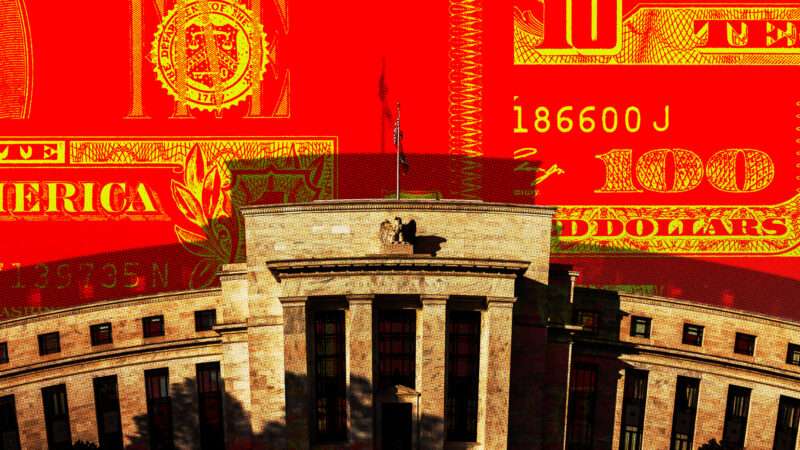
In the final week of 2022, we Americans can foresee two significant economic risks in 2023. The first one is a probability that the Federal Reserve will get weak-kneed and stop raising interest rates before inflation is truly under control. The second risk is that Congress will continue to spend and borrow money irresponsibly. The likely mix of these two hazards would all but ensure that our economic misery lasts much longer than necessary.
Let's start with the first risk. In theory, to tame inflation, the Fed will need to push real interest rates not only high—as it has already done—but higher than the highest rate that the Fed is now targeting, and in fact much higher than most investors can remember. Such high rates will have two main effects: popping the stock market and real estate market, along with any other asset bubbles that we've witnessed in recent years. The economic downturn that would follow would increase unemployment rates significantly.
On the other hand, if the Fed stops tightening too early, we will continue to suffer high inflation and slower growth. The rise in unemployment might be pushed back for a while, but because no inflationary policy can continue forever, it will inevitably arrive. And the longer we delay its arrival, the worse it will be. Unfortunately, in the face of such challenges, I worry that Fed Chair Jerome Powell will not make the better (and more difficult) choice and hold the line on inflation.
First, the pressure that he already faces from, for example, Sens. Bernie Sanders (I–Vt.) and Elizabeth Warren (D–Mass.) to stop raising rates will only intensify as the economy slows down and the unemployment rate increases.
Second, as interest rates increase, the amount of interest payments on the government's debt will grow. With no money to pay those interest obligations, the Treasury will increase borrowing—a move that will further raise the budget deficit. When complaints about rising deficits become loud, it won't be long before President Joe Biden's administration and others in Congress demand an end to the interest rate hikes. This practice is called fiscal dominance and it creates a real risk of further fueling inflation.
Finally, there is the risk that market actors will also pressure the Fed to protect them against losing the inflated wealth they've reaped as a result of two decades' worth of irresponsible monetary policy. In fact, as of now Wall Street investors are showing signs that they believe the Fed may soon abandon its policy of high interest rates in order to avoid a recession. It's hard to blame them because that's exactly what the Fed has done in the past.
So, will the Fed blink? Politicians aren't known for doing the right thing when times get hard, and it would be naive to assume that Fed chairs are immune from this. Powell, too, is a politician, as he demonstrated with his unwillingness to acknowledge the surging inflation problem—created by the government's own spending and stimulus—until it was too late. He could surprise us, of course, by courageously enforcing much-needed monetary discipline.
The second threat comes from politicians in Washington, right and left, doing their best to make the mess caused by the Fed just that much worse. Indeed, just as the Fed is pushing interest rates sharply higher, irresponsible "leaders" are launching a new "spend and borrow" spree to the tune of $1.7 trillion all wrapped in a reckless end-of-the-year omnibus bill.
This so-called bipartisan measure includes an increase of $76 billion in military spending over last year for a total of $858 billion (not counting $45 billion for Ukraine). Then, you have $773 billion in non-defense discretionary spending, which is $43 billion higher than last year, a level already inflated by the COVID-19 response. Congress has really given up on the pretense of fiscal responsibility.
This 4,155-page bill is guaranteed to be inflationary. It will make Powell's job harder and the rate hikes needed to control inflation larger. That in turn will only increase the chance that the Fed will cave to pressure to extend the crisis further into the year 2023.
But that's assuming that the Fed won't cave to the administration and monetize all that new borrowing, adding more fuel to the inflation fire. The bottom line is this, people: Grab your antacids, because if our leaders don't start thinking differently, 2023 is likely to be painful.
COPYRIGHT 2022 CREATORS.COM.
The post Congress and the Federal Reserve Could Be Setting Us Up for Economic Disaster appeared first on Reason.com.






